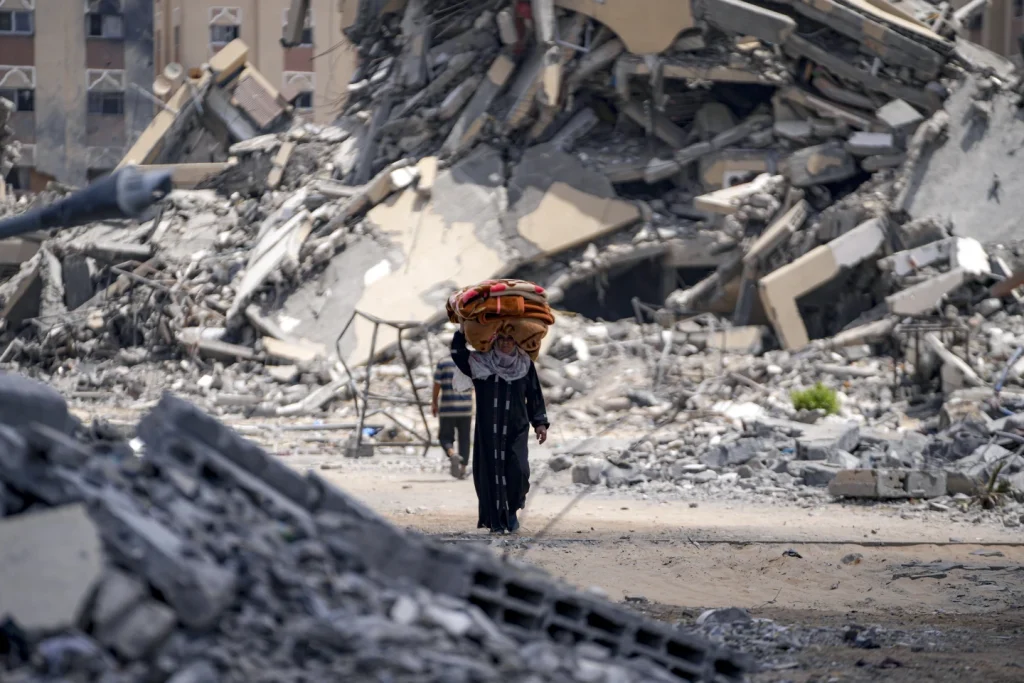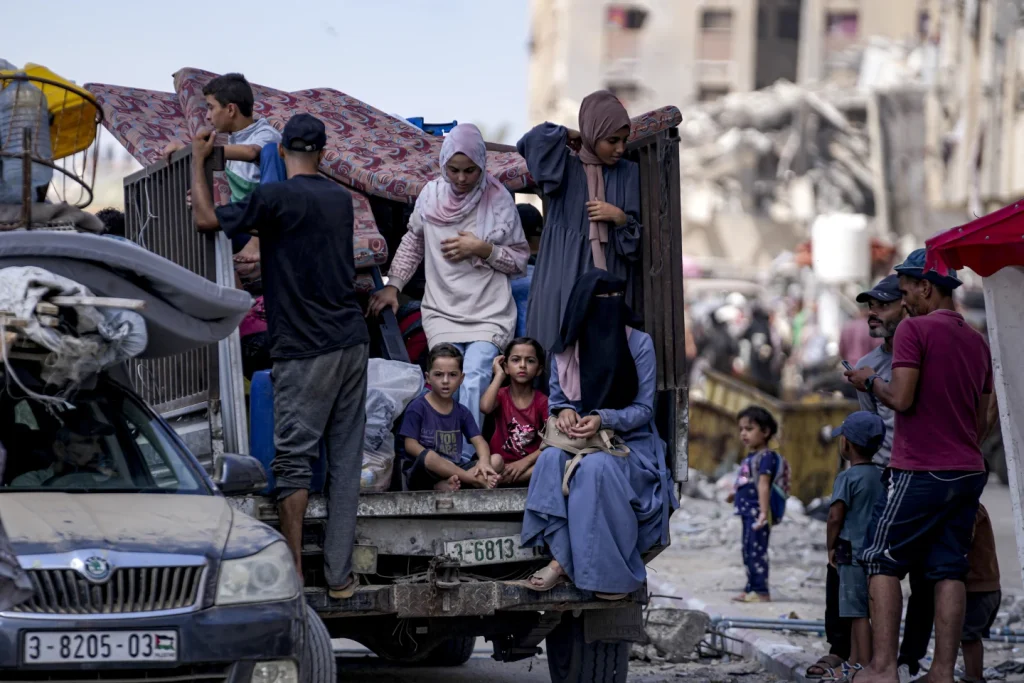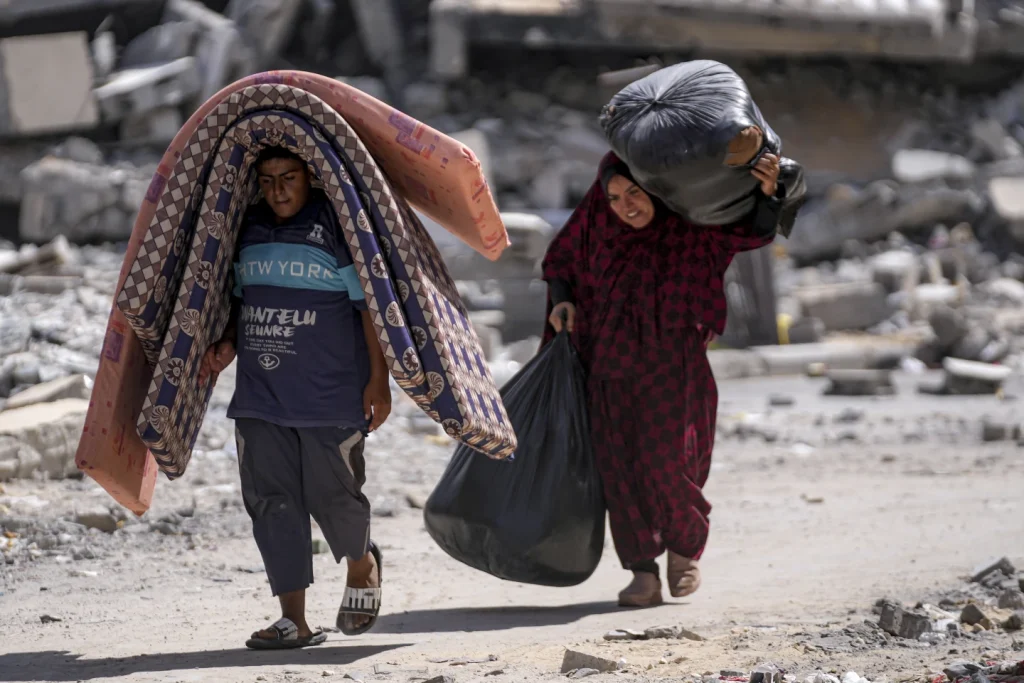The leaders of France, Germany, and Britain have given their support for a cease-fire in Gaza, the release of hostages held by Hamas, and the unrestricted delivery of humanitarian aid.
They have endorsed the recent efforts by the United States, Qatar, and Egypt to mediate a resolution to the Israel-Hamas conflict.
The mediators have been working on a three-phase plan that involves the release of remaining hostages held by Hamas in exchange for Palestinian prisoners held by Israel, and the withdrawal of Israeli forces from Gaza.
The joint statement released on Monday emphasized the need for an immediate end to the fighting and the release of all hostages still in Hamas’ custody. It also stressed the urgency of delivering aid to the people of Gaza without any obstacles.
The statement, signed by French President Emmanuel Macron, German Chancellor Olaf Scholz, and British Prime Minister Keir Starmer, also urged Iran and its allies to avoid any retaliatory actions that could further escalate tensions in the region following the recent killings of two senior militants in Beirut and Tehran.
Amidst the ongoing conflict in the region, tensions were running high as key players in the Israeli government and international community clashed over the terms of the cease-fire negotiations.
Ben-Gvir, a prominent figure in Prime Minister Benjamin Netanyahu’s ruling coalition, made it clear that he would not hesitate to bring down the government if he felt that too many concessions were being made in the talks.
On the other side, Borrell, a representative of the international community, called on Israel to unequivocally distance itself from any actions that could be considered war crimes.
He emphasized the importance of engaging in the cease-fire negotiations in good faith, which were being facilitated by the United States, Qatar, and Egypt.
The United States and other Western allies expressed their concerns about the loss of civilian lives in Palestine and the restrictions placed on aid operations by Israel.

Despite these concerns, they continued to provide crucial military and diplomatic support for Israel’s offensive, highlighting the complex and delicate nature of the situation.
As the cease-fire talks continued, the pressure mounted on both sides to find a resolution that would put an end to the violence and bring about a lasting peace in the region.
The international community closely monitored the negotiations, hoping for a breakthrough that would alleviate the suffering of civilians caught in the crossfire.
With the fate of the cease-fire hanging in the balance, the world waited with bated breath to see if a compromise could be reached that would satisfy all parties involved.
The future of the region depended on the outcome of these crucial negotiations, and the stakes could not have been higher.
The European Union’s top diplomat, Josep Borrell, criticized Israeli national security minister Itamar Ben-Gvir’s call to cut off aid to Gaza, calling it “incitement to war crimes” on the X platform.
Borrell suggested that sanctions should be considered in response to Ben-Gvir’s remarks, stating that it should be on the EU agenda.
Ben-Gvir had stated in his own post on X and in media interviews that instead of agreeing to a potential cease-fire deal, Israel should block humanitarian aid and fuel to Gaza until Hamas releases all hostages, believing it would weaken the militant group.
He has also advocated for the permanent reoccupation of Gaza, rebuilding Jewish settlements, and encouraging the “voluntary” migration of Palestinians from the territory.
Ben-Gvir, a key member of Prime Minister Benjamin Netanyahu’s governing coalition, has threatened to bring the government down if it makes too many concessions in the cease-fire talks.
Borrell called on Israel’s government to “unequivocally distance itself from these incitements to commit war crimes,” and to engage “in good faith” with cease-fire negotiations mediated by the United States, Qatar and Egypt.
The United States and Israel’s other Western allies have repeatedly voiced concern about the killing of Palestinian civilians and Israeli restrictions on aid operations in the 10-month-old war. But they continue to provide vital military and diplomatic support for its offensive.
Ben-Gvir, a significant figure in Prime Minister Benjamin Netanyahu’s ruling coalition, has issued a warning that he will bring down the government if it makes too many concessions in the cease-fire negotiations.
Borrell has urged Israel’s government to clearly distance itself from any calls to commit war crimes and to actively participate in the cease-fire talks facilitated by the United States, Qatar, and Egypt.
The United States and other Western allies have expressed concerns about the loss of civilian lives in Palestine and the restrictions placed on aid operations by Israel during the ongoing 10-month conflict.
Despite these concerns, they continue to provide crucial military and diplomatic support for Israel’s offensive.

In summary, the leaders of France, Germany, and Britain have expressed their support for a cease-fire in Gaza, the release of hostages held by Hamas, and the unrestricted delivery of humanitarian aid.
They have endorsed mediation efforts by the United States, Qatar, and Egypt. Tensions have risen as negotiations continue, with key players in the Israeli government and international community clashing over terms.
The international community has expressed concerns about civilian casualties and aid restrictions. The European Union’s top diplomat criticized Israeli national security minister’s call to cut off aid to Gaza, calling it “incitement to war crimes.” The outcome of the negotiations is crucial for achieving lasting peace in the region.
